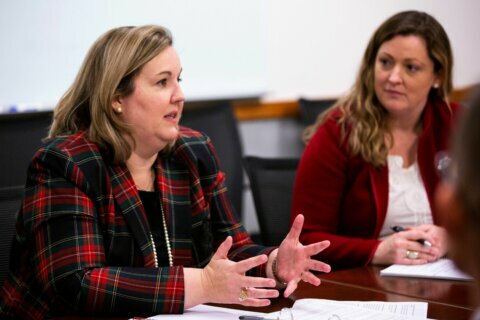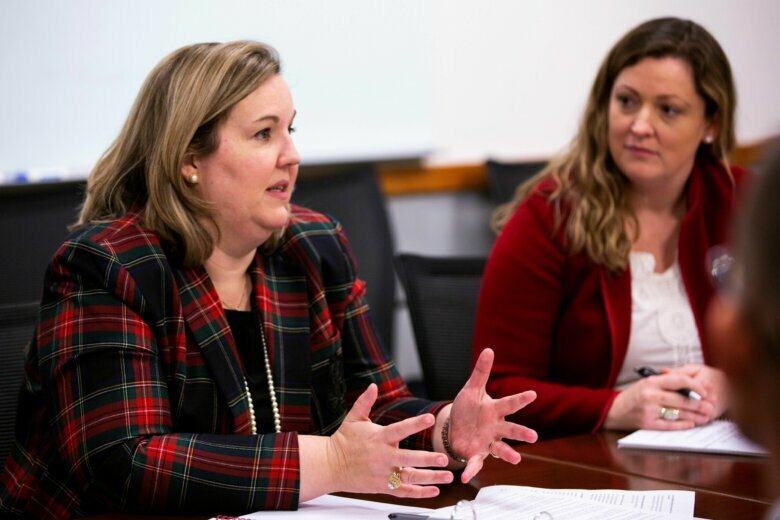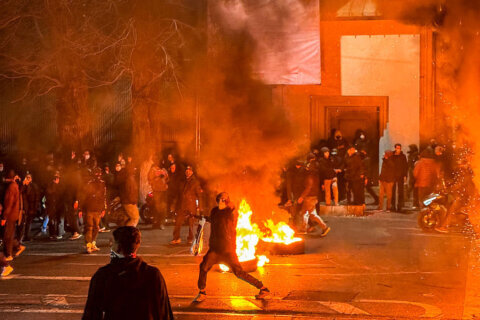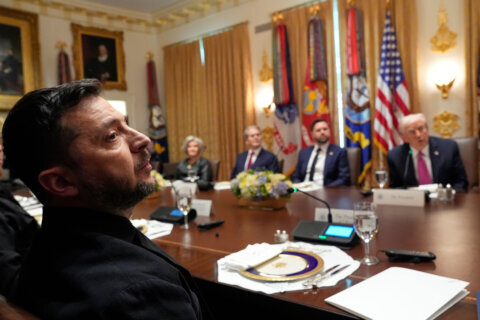
Impeccably dressed, charismatically polite and armed with an urgent message, Shelby Pierson, the U.S. Election Threats Executive in the Office of the Director of National Intelligence (ODNI), strode briskly into the studio at WTOP and got straight to the point.
“At this juncture, we do not have any intelligence information to suggest that adversaries have sought to compromise voting tallies or change voting numbers,” Pierson said.
But she hastily pointed out, that doesn’t mean they won’t try.
Since her appointment to the position in July of 2019, Pierson has crisscrossed the country hammering home the need to stay ahead of the threat actors.
One day she might lead a meeting at ODNI. The next day, she could be on the Hill, and possibly in that same week, she could be halfway across the country at an FBI field office.
No matter the location, she makes some variation of the following mantra crystal clear to her audiences.
“Election security remains a top priority for the U.S. Federal government as a whole. We have significantly evolved since 2016 and I don’t imagine we’ll decelerate anytime soon.”
According to Pierson, the choices that individual states make could undermine the success of 2020 election security.
According to research released Feb. 4, by MacAfee, a global computer security software company headquartered in Santa Clara, California, “as many as 83.3% of 2020 election battleground state counties websites lacked .GOV validation, and 88.9% and 90.0% of websites lacked such certification in Iowa and New Hampshire respectively.”
The research also says, “Such shortcomings could make it possible for malicious actors to establish false government websites and use them to spread false election information that could influence voter behavior and even impact final election results.”
It is precisely situations like those that Pierson warned about.
“In the clearest terms, technology has enabled our adversaries to reach into our democracy, and the American public is the target,” Pierson said. “For this reason, Americans should know that they too can help protect our elections by improving their media literacy and staying mindful of where information is coming from.”
According to Pierson, “There are considerably more resources focused on all aspects of this issue [than in 2016], we have improved upon some of our info-sharing processes, [and] we have a new strategy that has prioritized our threats, new data streams and broader engagement across the private sector and academia.”
In short, U.S. election security efforts are more robust than they have ever been.
Pierson said her job is to “galvanize the expertise, resources and capabilities of the intelligence community that focus on this.”
The intelligence community works with the FBI, DHS and state and local partners on the ground to combat cyber threats to election related infrastructure, as well as threats related to malign influence and influence operations in the U.S., Pierson said.
Pierson’s immediate team is comprised of about 15-20 people working on various parts of the mission. But the broader team she said, involves hundreds of people.
According to Pierson, this team “collects, analyzes, reports and operationalizes information of foreign threats to elections which includes threats to election-related infrastructure, as well as foreign influence operations.”
Also, “through our FBI and DHS partners, the IC shares appropriate intelligence to state and local election officials, and private sector partners to include social and digital media platforms,” Pierson said.
The work load is heavy, but Pierson, a distinguished veteran of more than 20 years in the intelligence community beginning as an imagery analysts at the CIA in 1999, said she’s personally invested in it.
“Abraham Lincoln said, ‘Elections belong to the people.’ Americans and Americans alone should be able to decide the direction of our country through their vote. I can think of no more important or satisfying work than to do my part to protect our elections,” Pierson said.









